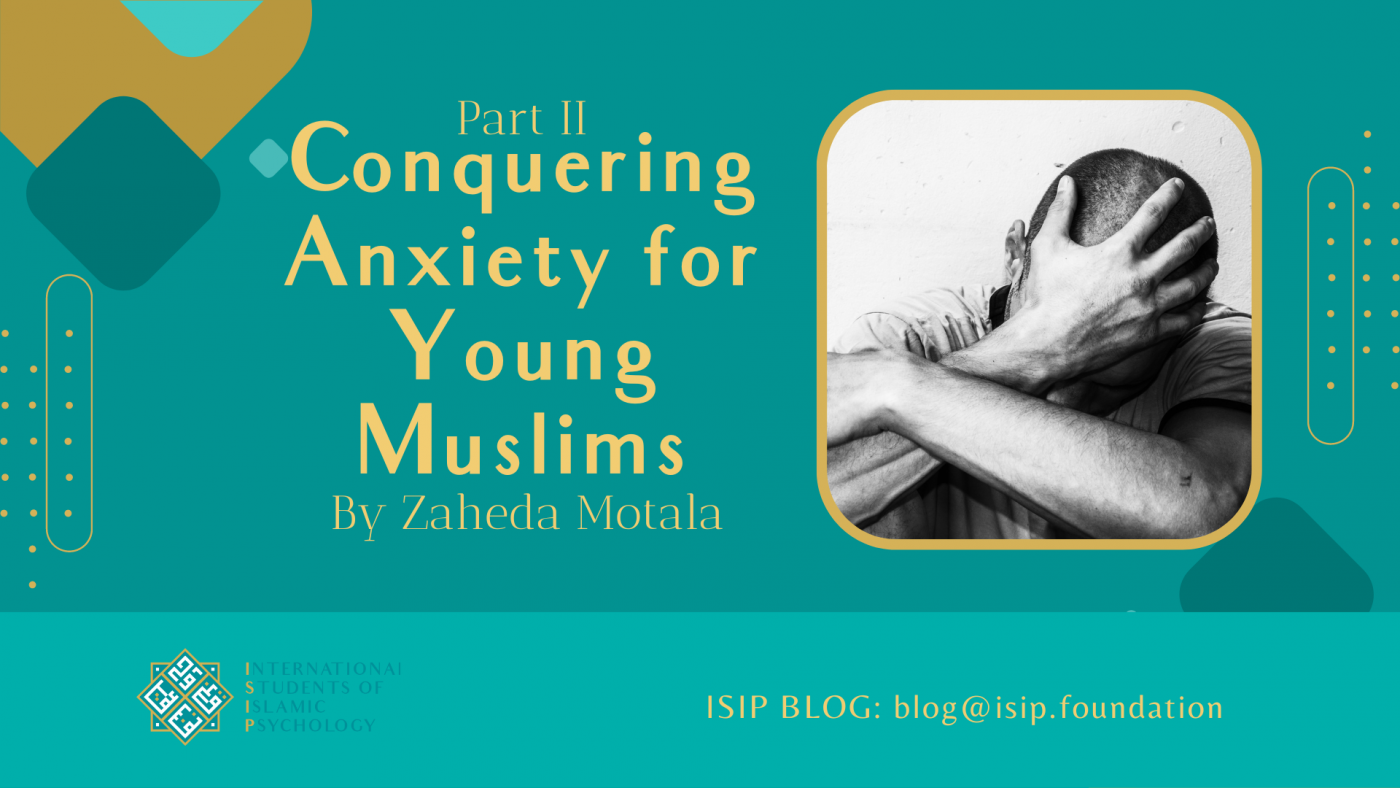
Shedding more light on mental health in Islam:
Think about this: even the prince of mankind, Prophet Muhammad ﷺ, faced tough times that made him sad or worried. The Prophet ﷺ had a year called ‘The Year of Sorrow’ after the demise of his beloved wife Khadijah (R.A.) and his uncle Abu Talib, along with the social and economic boycott of Muslims in Makkah. Ya’qub (A.S) endured prolonged grief for his son
Yusuf (A.S) to the extent that his eyesight weakened.
There was a time when the Prophet ﷺ was in so much grief, and Allah revealed the following verse to comfort him,
Your Lord ˹O Prophet˺ has not abandoned you, nor has He become hateful ˹of you˺. (93:3)
The Quran delineates the ‘nafs’ into three states: ‘nafs al-ammara’ (commanding self), ‘nafs al-lawwama’ (accusatory self), and ‘nafs al-mutmainna’ (peaceful self). ‘Nafs al-ammara’ represents self-controlled by desires, while ‘nafs al-lawwama’ signifies self-awareness and the aspiration for self-improvement. ‘Nafs al-mutmainna’ embodies contentment and peace.
The Quranic prescription involves cultivating a ‘nafs al-lawwama’ state, challenging negative thoughts akin to modern mindfulness practices. This parallels cognitive behavioral therapy (CBT), emphasizing altering maladaptive cognitive and behavioral patterns, aligning with the Quran’s notion of challenging negative thoughts for inner tranquillity.
Quranic Verses and Hadiths on Overcoming Stress and Anxiety
Facing tough times or feeling down isn’t easy, but the Quran and Hadiths have a way of guiding us through it all.
Ever heard that trials are a sign of Allah’s goodwill? The Prophet ﷺ said, “If Allah wills good for someone, He afflicts him with trials.” (Sahih Bukhari) It’s like saying, challenges can lead us to something great.
There’s this beautiful saying of the Prophet ﷺ about how every situation, good or bad, can turn out for the best for a believer. “How wonderful the affair of the believer is! Indeed, all of his affairs are good for him.” (Sahih Muslim) It’s a reminder that even tough times can teach us important lessons.
The Prophet ﷺ himself showed emotions and taught us to embrace them. When his son passed away, he cried and said, “The eyes are shedding tears and the heart is grieved, and we will not say anything except what pleases our Lord.” (Sahih Bukhari) It’s like saying, it’s okay to feel sad, but let’s find comfort in Allah’s plan.
Self-care matters too! The Prophet ﷺ said, “Your body has a right over you.” (Sahih Bukhari) It’s a reminder that balance in life is key, including taking care of our physical health.
The Quran tells us, “Seek help through patience and prayer.” (Surah Al-Baqarah 2:45) Praying and remembering Allah can give us the strength to get through tough times.
Remember, Allah tests us to make us stronger. “We will certainly test you with something of fear and hunger, and loss of wealth and lives and earnings, but give glad tidings to the persevering and patient.” (Surah Al-Baqarah 2:155) It’s saying, staying patient brings rewards.
When life gets tough, remember, “To Allah we belong and to Him we shall return.” (Surah Al-Baqarah 2:156) It’s a reminder that our struggles are temporary, and we belong to Allah.
PART III: Trusting in Allah (Tawakkul) and Dealing with Anxiety:
You know those times when things aren’t going as planned, and it feels like the whole world’s against you? Or when you’re super worried about exams, pleasing your boss, or taking care of your family? That’s when anxiety creeps in, right? Well, tawakkul is like a superhero move against this never-ending worry!
What’s Tawakkul, Anyway?
Tawakkul means putting your absolute trust in Allah (swt), and relying on Him for everything. It’s like when Musa (as) was told to drop his stick, not knowing what would happen, but trusting in Allah’s plan. He dropped it, and it turned into a snake! That’s trust in action!
There’s even a Hadith where the Prophet Muhammad (saw) talked about birds: “If you were to rely upon Allah with the required reliance, then He would provide for you just as He provides for birds.” It’s like the birds go out in the morning hungry and return full. That’s total trust, right?
Applying Tawakkul Every Day
We’re so used to wanting quick results! But when we trust Allah’s words like, “If you depend on Allah with due reliance, He would certainly give you provision,” (At-Tirmidhi), things start to make sense.
Remember when Musa (as) faced the sea, not knowing how to cross it? But with Allah’s command, he struck the sea, and bam! It split open! That’s trust mixed with action.
Believe in Allah’s Plan
Sometimes, despite trying super hard, things just don’t go our way. That’s life! But if we trust Allah’s plan, even when it feels like nothing’s working, it helps. You know, like, “If Allah plans something for you, it’s for your best.”
Combine Trust with Action
While we trust Allah, we gotta take action too! Birds leave their nests to find food. Similarly, we work hard, seeking jobs, studying, and doing our best. Prophet Muhammad ﷺ said, “Tie your camel and then trust in Allah.”
Believe in Allah’s Decisions
Sometimes, even after all our efforts and trust, things might not work out. It’s tough, but it’s life! But if we trust Allah’s decision, even when it’s not what we want, it helps. Trust that He’s got better plans!
Tawakkul isn’t just about sitting back and waiting for miracles. It’s about trust mixed with action. It’s about doing our best, trusting Allah’s plan, and believing that things will work out the way they’re supposed to, even if it’s not what we expected.
Remember, life’s like a rollercoaster. We give our best shot, trust in Allah, and hang on for the ride!
Link to Part III: Conquering Anxiety for Young Muslims (Part III) ► ISIP
